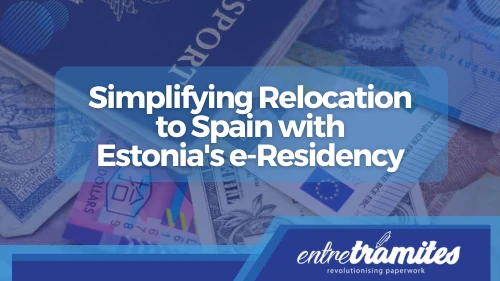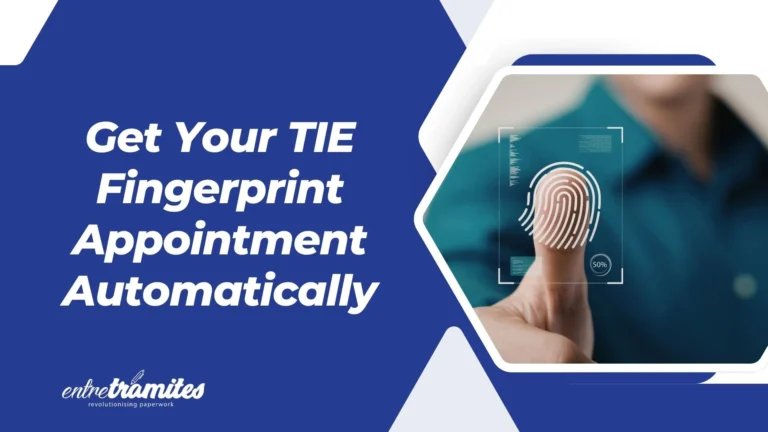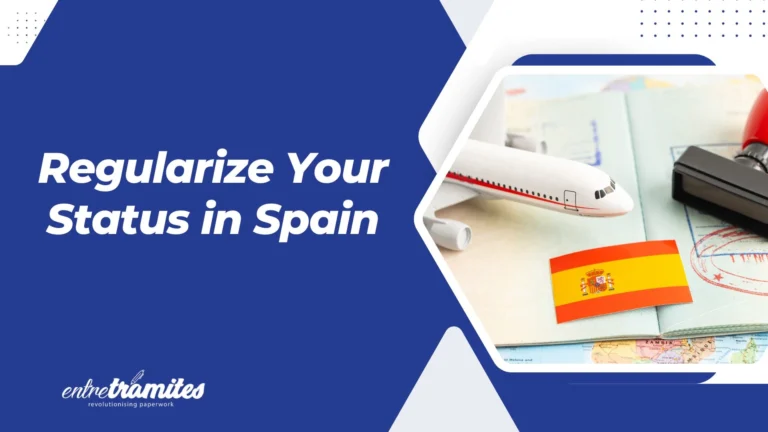In the digital age, both business and personal mobility have become more accessible thanks to innovations such as Estonia’s e-Residency program. Launched by the Estonian government, this program enables non-residents to establish and manage businesses within the European Union efficiently and without the need to physically reside in any country within the region. But how can this e-Residency pave the way for relocating to Spain?
What is e-Residency and What Does it Entail?
The e-Residency is a digital identity issued by the Estonian government that grants non-residents the ability to manage online businesses within the EU. To obtain it, interested individuals can submit an online application, pay a fee of approximately 100 euros, and await validation and background verification by the Estonian government agency. Once approved, a digital identity card is issued, enabling the holder to securely sign documents, access digital services, and establish and manage companies entirely online.
In essence, the primary purpose of the program is to significantly enhance the living experience and business activity for freelancers, digital nomads, entrepreneurs, international partners, and non-residents with ties to Estonia. Whether you are planning to start a new business, expand an existing one, or invest in promising new enterprises, the e-Residency in Estonia not only makes it feasible but notably accessible.
Key Features of Estonia’s e-Residency:
- Ease of doing business: e-Residency eliminates the need for physical presence in the EU, reducing both time and costs associated with travel and relocation. Managing businesses established through this program is straightforward and significantly reduces bureaucratic burdens for founders.
- Access to the EU market: e-Residency enables non-EU residents to establish and manage online businesses, providing access to a market with over 500 million consumers.
- Security and transparency: The platform provides a secure and transparent environment for conducting business, with digital signatures and encryption ensuring the privacy and security of online transactions.
What Estonia’s Electronic Residency Does Not Imply:
Estonia’s electronic residency (e-Residency) program is not a means to acquire citizenship nor does it grant legal residency status. It does not facilitate relocation to Estonia or allow permanent residency there.
The Estonian electronic residency card is different from a physical identity document and lacks validity as a travel document. It also does not provide fiscal residency, rights of residence, or authorization to enter Estonia (or any other European Union country). It is not a visa and does not guarantee rights of stay, nor does it include social benefits reserved for Estonian residents.
Additionally, e-Residency is not a way to avoid paying taxes in one’s home country. Therefore, it should not be considered a viable option for those seeking to evade their tax obligations.
Moving to Spain with e-Residency:
Estonia’s e-Residency is one pathway to moving to Spain in several ways:
- Digital Signature and Secure Transactions: A digital signature streamlines and secures business management, enabling the secure signing of legal documents and efficient, safe online transactions.
- Online Company Formation: E-Residency simplifies business creation, allowing the entire process to be completed online within minutes.
- Remote Management and Banking Options: E-Residency provides access to fintech solutions, offering flexibility in financial management and reducing the need for extensive physical presence in Estonia.
How to establish in Spain having an E-Residency?
Although Estonia’s e-Residency enables individuals to manage businesses in Spain, it does not automatically confer the right to reside in Spain or any other EU country. To establish residency in Spain, certain requirements must be met and specific procedures followed. Here is a general guide to the necessary documents and requirements:
Necessary Documents:
- Passport: A valid passport is required for entry and stay in Spain.
- Residence Visa: Depending on the nationality of the e-Residency holder, it may be necessary to obtain a residence visa to enter and settle in Spain. Rules vary depending on the country of origin.
- Criminal Record Certificate: In some cases, a criminal record certificate may be required to obtain a residency visa.
- Health Insurance: Often, proof of health insurance covering medical expenses during the stay in Spain is requested.
- Proof of Financial Resources: Evidence of sufficient financial resources to support oneself during the stay in Spain may be required.
- Consular Registration Certificate: Some countries may require a consular registration certificate, which is obtained at the Spanish embassy or consulate in the home country.
Requirements for Living in Spain:
- Registration at an Immigration Office: Upon arrival in Spain, it is necessary to register at the Immigration Office or the local Police within the first 30 days of arrival.
- Foreigner Identification Number (NIE): The NIE is a tax identification number necessary for transactions and legal activities in Spain. It can be obtained at the police station or the Immigration Office.
- Housing Contract: A rental contract or proof of ownership of the housing where one will reside in Spain may be required.
- Registration in the Padrón Municipal: Registering in the municipal register is a requirement to access public services and local benefits.
- Affiliation with Social Security: If planning to work in Spain, affiliation with the Spanish Social Security is required.
Impact on the Spanish Business Landscape:
Estonia’s e-Residency not only facilitates relocation to Spain but also diversifies the Spanish business landscape by allowing SMEs to operate digitally within the European Economic Area. This initiative drives global expansion for entrepreneurs, reduces bureaucracy, and attracts international investment and talent, making Spain an attractive destination for innovation and entrepreneurship.
Estonia’s e-Residency could inspire other nations, transforming the global business landscape. It serves as a testament to the power of digital solutions to overcome geographical barriers, foster economic integration, and pave the way towards a future of digital governance and international business cooperation. For those looking to start a business in Spain, Estonia’s e-Residency opens up a new horizon of possibilities, simplifying and streamlining the process of establishing and managing businesses in the European Union.
Do you need more information about Estonia’s e-Residency?
We want to listen to you and know what your questions are about the procedures you have to carry out. Count on the advice of our experts to clarify all your doubts.
At Entre Trámites we invite you to learn about our services. Fill in our contact form and we will call you to help you as soon as possible, schedule a free online consultation, or simply text our WhatsApp.





